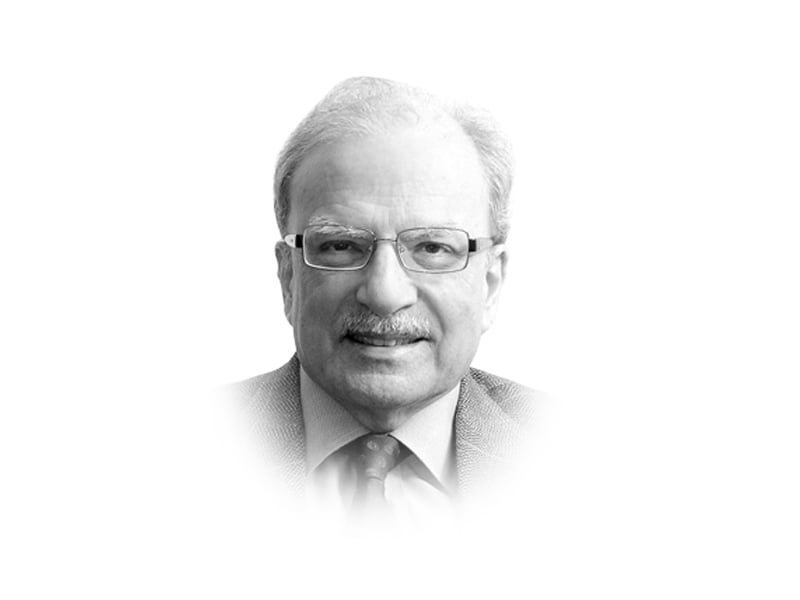I write this as India has begun the weeks-long process of national elections. The results of the elections will be announced on June 4, but the outcome is well known. Narendra Modi, the incumbent prime minister, will get another term in office which he has held since 2015.
His political organisation, the Bhartiya Janata Party (BJP) will come in with an even larger majority than it obtained in the elections of 2019 when it won 303 seats in the Lok Sabha, the lower house of the Indian parliament which has 543 seats. When Modi completes his third term in 2029, he would have served as India’s prime minister for 15 years. This would be the longest tenure of any individual in Indian history. What will Modi do with this unprecedented domination of the Indian political system?
This is an important question not only for 1.5 billion citizens of India, which now has the world’s largest population, having overtaken China a few years ago. It is an important question for several countries outside India’s borders. Pakistan belongs to the latter group. Modi and his political party have not made any secret of their hostility towards their large, predominantly Muslim neighbour. Of special concern is the way Modi and the senior members of his government and political organisation treat the country’s large Muslim population. With 200 million people of Islamic faith who are India’s citizens, the country has the third largest Muslim population in the world, after Indonesia and Pakistan.
There are several Indian commentators writing about their country from India who worry about what they call India’s old bigotry. Among them is Siddhartha Deb, the author of Twilight Prisoners: The Rise of the Hindu Right and the Fall of India. In an opinion piece contributed to the April 19, 2024 issue of The New York Times, he recalled the Ayodhya episode. “The sleepy pilgrimage city of Ayodhya in northern India was once home to a grand 16th century mosque, until it was illegally demolished by a howling mob of Hindu militants in 1991,” he wrote. “The site has been reinvented as the centerpiece of the Hindu-chauvinist ‘new India’ promised by Prime Minister Narendra Modi. In 2020, Modi went to Ayodhya to inaugurate the construction of a three-story sandstone temple to the Hindu god Ram on the site of the former mosque. He offered prayers to the Ram idol and inserted an 88-pound silver brick as the foundation stone.” However, there is no conclusive evidence supporting Hindu claims that Ram was a historical figure or that a temple devoted to his memory stood there. The temple was completed and inaugurated by Modi on January 22, 2023.
The temple’s inauguration day comes four days before January 26 that celebrates the adoption of India’s secular constitution. Modi and his government have tinkered with other dates to drive home the idea that India is a Hindu country which should be called Bharat rather than India. August 15, which before Modi came to power, was celebrated as India’s Independence Day has been named differently. Now, announced Modi, it would be Partition Horrors Remembrance Day referring to the hundreds of thousands of people of all religions who were killed as 14 million people moved in one direction or the other. That movement was one of the largest in human history.
That many among the Western leadership has bought Prime Mister Narendra Modi’s idea of new India is reflected in the space they are giving his country in the world they are constructing that would keep China at a comfortable distance. Pakistan should draw some comfort from the fact that the rising China is one of its four neighbours. No matter how hard the US and its Western allies try, China cannot be contained by what they believe is a rising India. Some among the western leadership may have bought Prime Minister Modi’s idea that under his rule, India is on the way to becoming a dominant world player. However, there are many in India who believe that is not the case. Deb is not the only Indian writing about his country with considerable skepticism.
While the leadership in the West may have begun to look at Modi and the country he leads as a way of containing the growing influence in Asia of rising China, that confidence is not shared by many Indians both living inside the country as well as those who are members of the large Indian diaspora. Many Indians are now increasingly concerned about what the British when they governed the large Indian colony called their “Mussalman problem”. Prime Minister Narendra Modi continues to pursue his divisive approach towards representative politics in India. I will take up this subject next week in this space.
—–
Shahid Javed Burki is a prominent professional economist. In 1974, he joined the World Bank as Senior Economist and served as Vice-President of the organization until he took early retirement in 1999. He held several senior executive positions at the World Bank and was a de facto Finance Minister of Pakistan on a caretaker basis (1996–7). He writes a weekly column for The Express Tribune and contributed to the op-ed pages of the Financial Times, London, and The Indian Express, Delhi. He is the author/editor of several books on Pakistan, including ‘Pakistan Under Bhutto’ (1980); ‘Pakistan under the Military: Eleven Years of Zia Ul-Haq’ (with Craig Baxter, 1991); ‘Pakistan: Fifty Years of Nationhood’ (1999); ‘A Historical Dictionary of Pakistan’ (1999); and ‘Changing Perceptions, Altered Reality: Pakistan’s Economy under Musharraf, 1999–2006’ (2007). Presently, Burki is Chairman, Advisory Board of the Burki Institute of Public Policy, Lahore, Pakistan.





